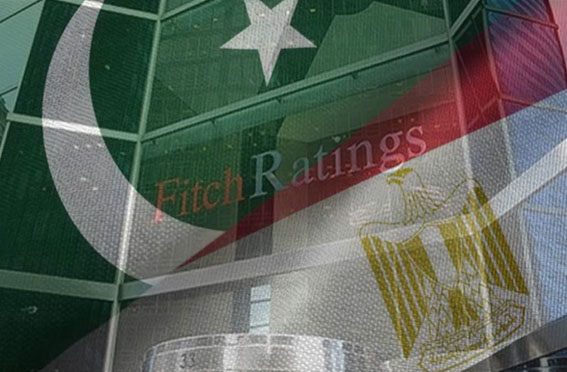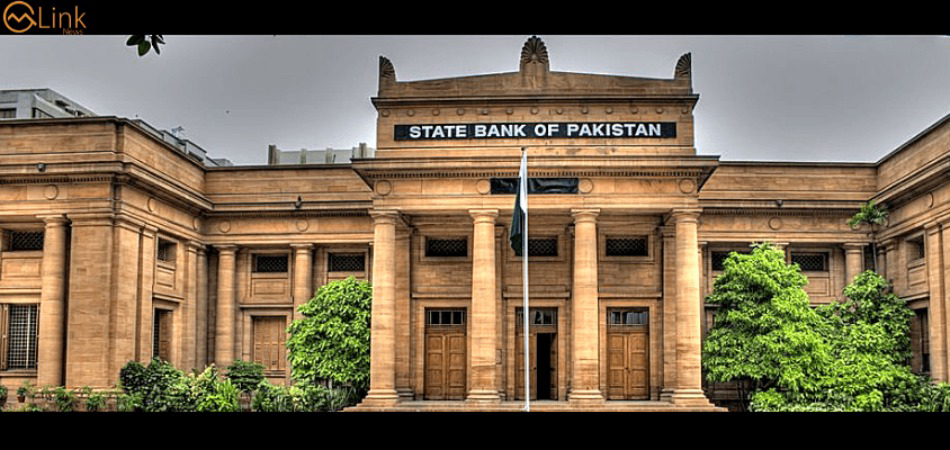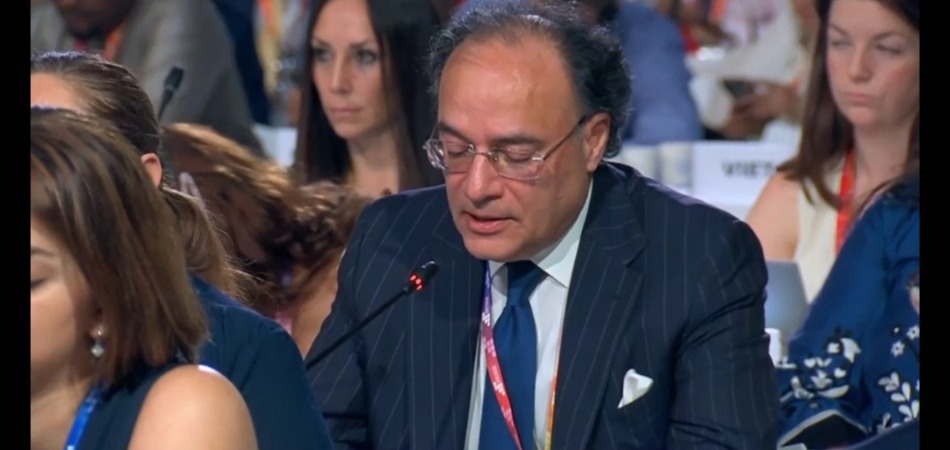Pakistan, Egypt rely on reforms, support to tackle shocks: Fitch Ratings

By MG News | December 06, 2024 at 09:50 AM GMT+05:00
December 06, 2024 (MLN): Flexible exchange rates, bilateral support, and structural reforms have played a critical role in helping Egypt and Pakistan manage external and policy-induced shocks in recent decades, Fitch Ratings said in its latest report.
"The responses of Egypt and Pakistan to external and policy-induced shocks in recent decades highlight the centrality of flexible exchange rates as shock absorbers, the key role of bilateral support, and the importance of structural economic reforms for longer-term external finance sustainability," it reads.
Egypt and Pakistan are large, strategically significant emerging economies with weak external and public finances. Fitch upgraded Egypt to ‘B’/Stable in November, and Pakistan to ‘CCC+’ in July.
Despite higher debt, Egypt’s higher ratings reflect stronger liquidity, policymaking, and structural features. Its stronger liquidity results from greater availability of external support, less volatile policymaking, and more constructive IMF engagement.
Egypt’s economic and fiscal revenue base is broader. Nevertheless, both sovereigns’ credit metrics are improving under IMF programmes.
To varying degrees, both Egypt and Pakistan show a preference for nominal exchange-rate stability as a way of anchoring inflation expectations and domestic confidence.
Even when they maintain a nominally flexible exchange-rate policy, as is the case today, currency fluctuations tend to be low, which in our view partly reflects underdeveloped interbank markets and a preference for exchange-rate stability among commercial banks.
However, exchange-rate rigidity has contributed to balance-of-payments crises.
Both countries run current account deficits, which have led to large external debt burdens over time, reflecting their dependence on imports to satisfy growing domestic demand, amid high population growth, and limited development of new exporting industries. Remittances offset this to some extent.
Egypt and Pakistan benefit from significant bilateral and multilateral financial support, particularly from the Gulf Cooperation Council countries and China.
Extraordinary bilateral support has enabled Egypt and Pakistan to overcome external shocks without default or debt restructuring, in some instances disincentivising deeper economic reform.
However, bilateral support is becoming increasingly tied to IMF engagement and reforms, and more commercial in nature.
Copyright Mettis Link News
Related News
| Name | Price/Vol | %Chg/NChg |
|---|---|---|
| KSE100 | 130,344.03 345.79M |
1.67% 2144.61 |
| ALLSHR | 81,023.99 1,021.87M |
1.55% 1236.37 |
| KSE30 | 39,908.26 141.62M |
2.05% 803.27 |
| KMI30 | 189,535.00 150.29M |
1.40% 2619.39 |
| KMIALLSHR | 54,783.66 508.76M |
1.07% 581.78 |
| BKTi | 34,940.73 55.86M |
4.37% 1464.05 |
| OGTi | 28,296.06 16.02M |
1.19% 333.47 |
| Symbol | Bid/Ask | High/Low |
|---|
| Name | Last | High/Low | Chg/%Chg |
|---|---|---|---|
| BITCOIN FUTURES | 109,380.00 | 110,105.00 109,205.00 |
-905.00 -0.82% |
| BRENT CRUDE | 68.51 | 69.00 68.41 |
-0.60 -0.87% |
| RICHARDS BAY COAL MONTHLY | 97.50 | 0.00 0.00 |
0.75 0.78% |
| ROTTERDAM COAL MONTHLY | 109.20 | 110.00 108.25 |
1.70 1.58% |
| USD RBD PALM OLEIN | 998.50 | 998.50 998.50 |
0.00 0.00% |
| CRUDE OIL - WTI | 66.88 | 67.50 66.78 |
-0.57 -0.85% |
| SUGAR #11 WORLD | 15.56 | 15.97 15.44 |
-0.14 -0.89% |
Chart of the Day
Latest News
Top 5 things to watch in this week
Pakistan Stock Movers
| Name | Last | Chg/%Chg |
|---|
| Name | Last | Chg/%Chg |
|---|




 Trade Balance
Trade Balance
 CPI
CPI